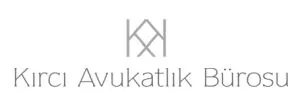The outbreak of the COVID-19 pandemic, which has had irreversible effects on our lives, has also brought along a drastic change in consumer behaviors. Although there are many other underlying reasons, the pandemic and the increased use and preference of e-commerce sites are believed to have caused illicit trade to increase significantly in Turkey. A very recent report that supports this statement and was drawn up in collaboration with the Organization for Economic Co-operation and Development (OECD) and the European Union Intellectual Property Office (EUIPO) sets out that Turkey ranks third among provenance economies for counterfeit and pirated goods.
This recent data also proves that emphasis needs to be placed on malicious trademarks in Turkey, which in this paper are referred to as the villains of trademark law and illicit trade.
In this respect, this paper will provide a definition of, and an overview of regulations on malicious trademarks in Turkish Law, along with an elaboration of criteria accepted by the Turkish Court of Cassation for the existence of a malicious trademark, considering the previous and up-to-date decisions. In addition, the legal regulations currently in force regarding malicious trademarks in Turkey and especially the stance of the Turkish courts of the first instance will be analyzed with a critical approach. Thus, we will try to signify how problematic the malicious trademark applications and registrations in Turkey are and that, unfortunately, the extent of malicious trademark usage is worse than predicted.
To read this article in full, please click here.
This article was published online in the Journal of Intellectual Property Law & Practice on 01 December 2021.
The content of this article is intended to provide a general guide to the subject matter. Specialist advice should be sought about your specific circumstances.

